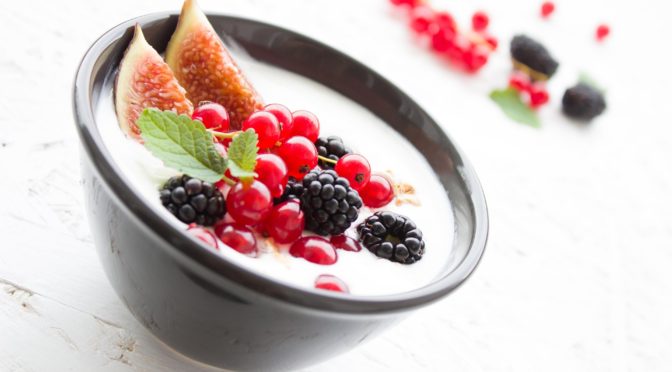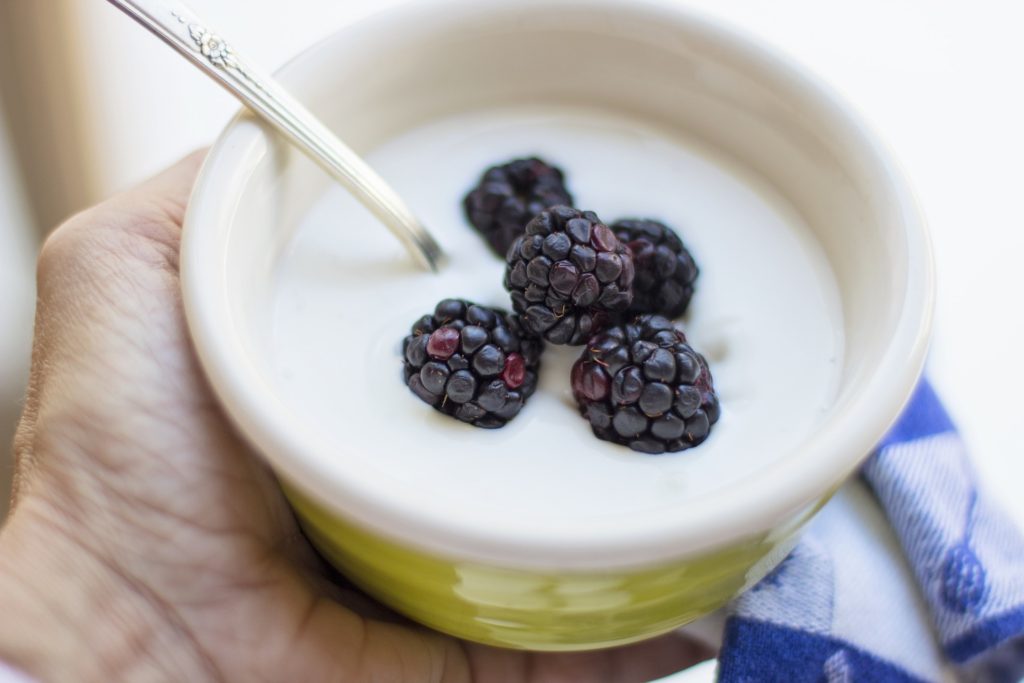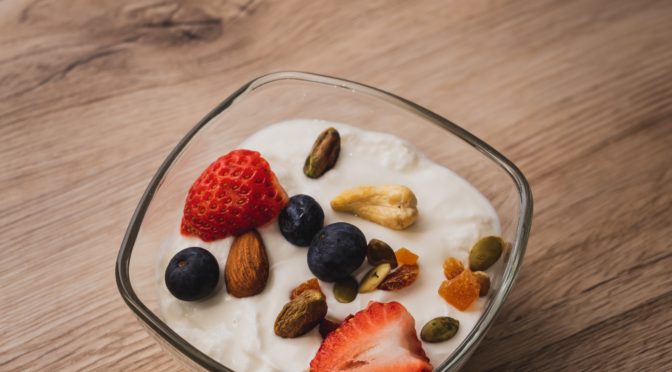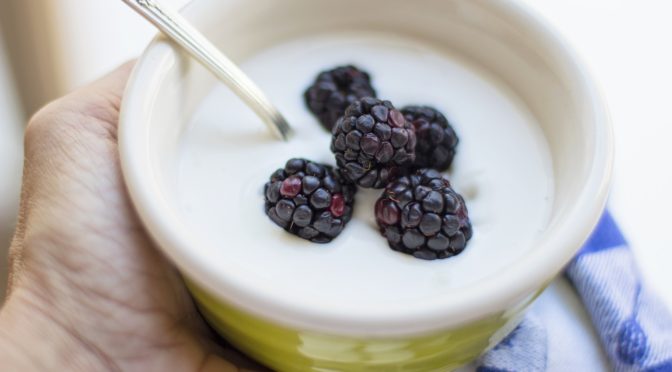Are you looking for the best probiotic for men over 50? Well, it’s never too late to start taking care of your health, What better way than to start by improving your gut health?
According to a study published in the American Journal of Physiology, gut microbiota plays an important role in regulating glucose metabolism and insulin sensitivity. That means a healthy gut can help prevent or control conditions like diabetes, obesity, and metabolic syndrome.
But how do you know which probiotic is right for you? We’ve got you covered. We asked our expert, Dr. Steven Lamm, about the three things you should consider when choosing a probiotic for men over 50:
-First and foremost, potency matters. The potency of a probiotic is measured by the number of colony-forming units (CFUs) on its label.
The higher the CFU count, the more effective it’ll be at fighting off bad bacteria and promoting good bacteria within your body. Look for one that contains at least 10 billion CFUs per capsule.
When you’re shopping for a probiotic, you might also see names like “acidophilus” or “lactobacillus” on the label—these are two types of good bacteria that are naturally found in your body. Look for a supplement that has these
The best probiotic for men over 50: Even if you’re as young and healthy as a horse, your gut tends to take more of a beating than your skin.
Unless you’re eating a healthier diet than the average American, your gut is probably chock-full of bad bacteria; in fact, most people need help to get rid of these invaders.
Its ingredients are specifically designed to foment a healthy environment in the gut, boosting overall health and giving an extra boost to your immune system.
First Found in the Human Body
The first probiotic was actually found in the human body, not in a test tube or petri dish as is more common today. It wasn’t until World War I that probiotics were introduced to the public by Russian scientist and Nobel Prize Winner Élie Metchnikoff.
While working at the Pasteur Institute Metchnikoff discovered that rural peasants in Russia and Bulgaria lived to be old and healthy even though they drank sour milk. This probiotic drink was the secret to their long lives.
Scientists have since learned that probiotics are actually bacteria that occur naturally in some foods, most commonly dairy products like yogurt. Indeed, researchers at the Harvard School of Public Health found that probiotics may help prevent bladder infections.
Other probiotics include specific strains, like lactobacillus GG, that are found in certain yogurt brands and known to survive the trip through the digestive system.
Consider Supplementation
Men should consider probiotic supplements if they have any digestive problems such as irritable bowel syndrome (IBS), irritable bowel disease (IBD), inflammatory bowel diseases (IBDs), diarrhea, or constipation. It’s also good for men that are looking to improve their immune systems and prevent yeast infections.
Probiotics can be found in foods like yogurt, sauerkraut, kimchi, dark chocolate, and soy drinks. However not every probiotic is alike. Some probiotics are specific to women’s probiotics, while others are more “neutral” and can be used by both men and women.
The Best Probiotic Supplements For Men
Finding the best probiotic supplements for men over 50 has a lot to do with knowing what kind of probiotics they need. Women have different probiotic needs than men, and vice versa.
For example probiotics specific to women might be made with calcium, as women tend to have lower levels of calcium than men.
Men should look for probiotics that are refrigerated and contain a large number of probiotics per daily dose. The probiotics should come from several different strains and they should be able to survive the trip through the digestive system.
The probiotics should also be able to populate in the intestines, not just travel through them.
The probiotics that are best for men include:
– Soil-based probiotics – these probiotics have been found to be very effective at treating IBS and other gut disorders because they allow our probiotics to populate in our gut. They have been clinically proven to reduce inflammation and abdominal pain.
– Probiotics that are from a few different probiotic strains – Men should look for probiotics that contain at least three probiotic strains.
The more the better, up to 20 probiotic strains is considered optimal by wellness experts. Probiotics that contain several probiotic strains are more effective than probiotics that only have one strain.
– Probiotics that are able to survive the digestive system – most probiotics can simply pass through our bodies.
However, some probiotics have been clinically proven to survive the digestive system and populate in the intestines. These probiotic supplements typically need to be kept in the refrigerator for maximum effectiveness.
– Probiotics that are able to make it past stomach acid – probiotics should survive stomach acid, not simply pass through it. The best probiotic supplements will contain strains of probiotics that are known to be particularly effective at surviving stomach acid.

Consider Lactobacillus Probiotics
The probiotics that men should look for include lactobacillus probiotics, as these probiotics have been clinically proven to be very effective.
In addition, men should look for probiotics that have a long history of safe use, as this ensures that they do not contain any dangerous ingredients or impurities. For example, probiotics from soil-based probiotics have a history of safe use and are known for being very effective.
Probiotics also contain live probiotic cultures, which help to populate the gut and reduce inflammation and digestive problems (IBS, IBD). For example, probiotics that contain lactobacillus probiotics have been clinically proven to decrease bloating and abdominal pain caused by IBS.
Good Bacteria
Probiotics, or “good bacteria”, help to establish healthy intestinal flora and promote digestive health. These beneficial organisms are naturally present in your body – specifically, in the stomach and intestines – but can also be introduced through food or supplements.
Probiotic supplements (commonly called “yogurts”) may contain probiotics like lactobacilli and bifidobacteria, which are known to benefit gut health. Other probiotic supplements may contain additional strains of probiotics, often providing much higher quantities than those found in yogurt.
The probiotic supplement market is expected to grow exponentially over the next few years as more consumers become aware of probiotics’ benefits. With that in mind, it’s important to remember that all probiotic supplements are not created equal – so do your research before choosing one.
Some probiotic supplements may provide little health benefit beyond what you could receive from eating food naturally rich in probiotics or adding probiotics to your diet through foods like yogurt or kefir (aka “grains”). Before using a probiotic supplement, it’s important to identify the probiotic species that is most abundant in your gut and read probiotic product labels carefully.
Choosing a probiotic supplement may seem intimidating with the various options available in stores and online, but understanding probiotics’ benefits and how they interact with your body is simplified by answering three basic questions: What are probiotics? How do probiotics work? And what are some specific probiotic strains I should look for when choosing a probiotic supplement?
What Are Probiotics?
Probiotics are beneficial bacteria, often called “good” or “helpful” bacteria. These good bacteria live in both your digestive system and throughout your entire body, helping to support immune function, digestion, nutrient absorption, and healthy metabolism.
Probiotics are also known to produce vitamins in the body like biotin, B-complex vitamins including folic acid, as well as probiotic vitamin K2. Probiotics can increase your body’s ability to absorb calcium.
Your digestive tract contains trillions of probiotic cells that are essential for helping you maintain a healthy gut microbiome (the probiotic colonies living inside you). Unfortunately, many factors in today’s modern world may destroy these probiotic colonies.
These factors include things like: antibiotics overuse; excess sugar or caffeine intake; excessive stress or dramatic fluctuations in hormone levels; exposure to environmental toxins such as pesticides and chemicals found in household goods.
A poor-quality diet with processed foods lacking probiotics; and an overabundance of bad bacteria in the gut (due to things like leaky gut syndrome or candida).
The probiotic supplements on the market today come from probiotic foods and cultures, such as kefir; yogurt; miso; sauerkraut; aged cheeses; Korean kimchi; tempeh; natto. Probiotic supplements may also contain additional probiotic strains not found in food sources, which can be very beneficial for your health.

How Do Probiotics Work?
Probiotics aid digestive and immune function by balancing levels of good bacteria versus harmful bacteria inside your body. They accomplish this through both direct and indirect interactions:
Direct: probiotics compete with bad bacteria for space and access to nutrients.
Indirect: probiotics supply your gut with beneficial compounds that help protect it from exposure to harmful bacteria.
Direct probiotic interactions occur both in the stomach while food is being broken down, as well as in the intestines once probiotics reach these areas after passing through the stomach.
Indirect probiotic interactions occur when probiotics release molecules known as exopolysaccharides (EPS) which act like insulation protecting your gut cells against attack by harmful invaders including viruses or parasites.
Other beneficial probiotics effects include regulating immune function by creating substances called cytokines that communicate information between immune system cells; improving digestion leading to better nutrient absorption; promoting healthy skin, hair, nails, bones, and more; as well as producing vitamins like probiotics K2.
How To Select The Best Probiotic Supplement For You?
Probiotics are beneficial bacteria that help maintain a healthy immune system and digestion, support probiotic metabolism, and increase your body’s ability to absorb nutrients. They also produce helpful probiotic compounds that can improve skin health and reduce arthritis symptoms, for example.
Finding the best probiotic supplement with the most effective probiotic strains for you is going to be greatly aided by starting with an understanding of probiotic benefits followed by further research into probiotic supplements with most probiotic strains matching those specific benefits.
In other words, what benefit you most want from a probiotic supplement will define which probiotic strain(s) it should contain.
For probiotic benefits, research shows probiotics can help with digestive health (probiotics like Lactobacillus rhamnosus ), support immune function ( probiotics like Bacillus laterosporus), support probiotic metabolism ( probiotics like Bifidobacterium lactis ), and boost your body’s ability to absorb minerals.
For example, probiotics containing Lactobacillus acidophilus can increase levels of vitamin D in the body; probiotics containing Bifidobacteria longum produce folate which enhances DNA synthesis and prevents cell damage; probiotics containing Enterococcus faecalis prevent unhealthy metabolic acids from accumulating inside cells; etc.
Different Probiotic Strains
Next, learn how different probiotic strains work to support probiotic benefits. For example, probiotics containing Bifidobacteria longum are good probiotics for women thanks to the beneficial probiotic effects of improving fertility and probiotic balance by inhibiting pathogenic bacteria including H. pylori.
This can cause stomach ulcers; probiotics containing Lactobacillus rhamnosus boost immune function by increasing levels of cytokines that help fight foreign invaders; probiotics containing Enterococcus faecalis help prevent unhealthy metabolic acids from accumulating inside cells by creating substances that signal cells when enough is enough.
Finally, use this information to select probiotic supplements with the most effective probiotic strains for your particular health concerns.
Probiotics with the highest viable cell count per capsule tend to be more effective probiotic supplements. Higher probiotics viability means probiotics are better prepared at the moment they are consumed to have beneficial probiotic interactions with your gut, for example.
Recommended daily dosage of probiotics is 1-50 billion cfu’s/day which you can get from 2-3 probiotic capsules or by eating prebiotically rich foods like kefir and kombucha (see below). I
f you eat a healthy organic diet and manage stress well, then less than 50 billion cfu’s/day may also work for you depending on your specific health goals and lifestyle choices.
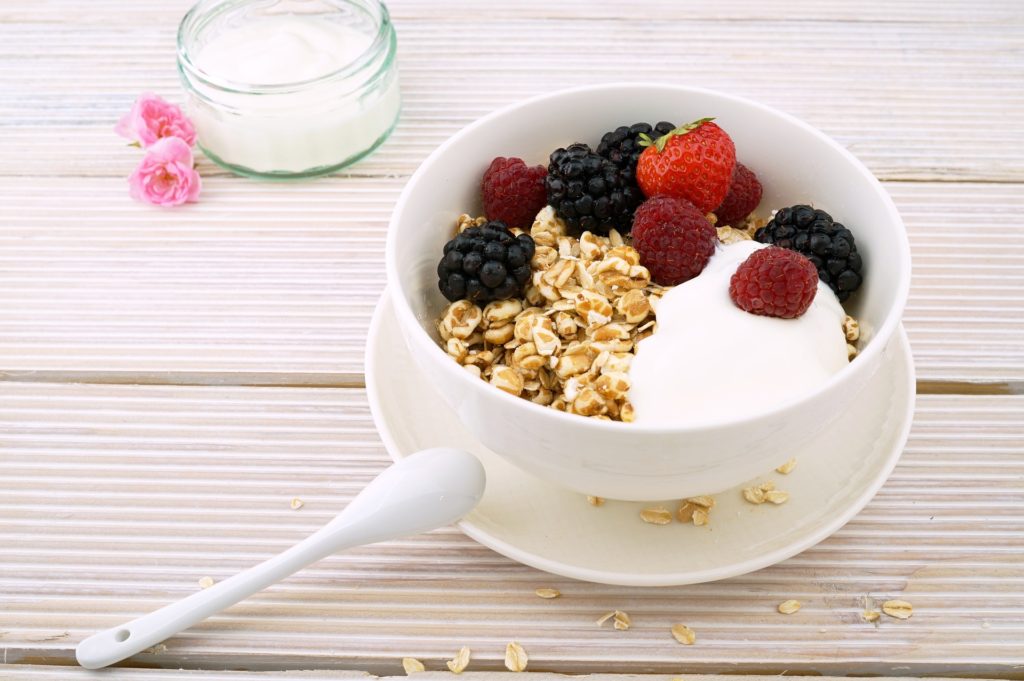
What Are The Best Sources Of Probiotics?
The best sources of probiotics come from organic whole foods that contain prebiotics like kefir ( probiotics like Lactobacillus kefir ) and kombucha ( probiotics like Gluconacetobacter probiotic strain) which offer abundant probiotics benefits.
Prebiotics work with probiotics to create a beneficial environment for gut microbes in your digestive system. Probiotics actually depend on prebiotics to survive; probiotic bacteria feed on prebiotic fiber, but only specific types of probiotic bacteria can utilize certain types of soluble fibers.
Fermented foods are great sources of probiotics and probiotic prebiotics. You can get additional probiotics from eating fermented vegetables or drinking water cultured with probiotics.
Whey probiotic supplements are another way probiotic benefits are realized through ingesting probiotic microorganisms. However, keep in mind not all probiotics are safe for everyone. Make sure to consult your doctor before taking any probiotic supplement or making changes to your diet.
Probiotics Benefits Of The Most Common Probiotic Strains: All probiotic strains have some beneficial effects but some probiotic strains such as Bifidobacterium lactis and Bacillus laterosporus stand out as having the most effective probiotic benefits.
These extend beyond basic digestive functions into pathways of immune support and healthspan enhancement through detoxification and antioxidant benefits. 1) Lactobacillus acidophilus: Antibacterial, probiotics benefits, probiotic side effects, probiotics dosage
Modulate the Immune System
Lactobacillus acidophilus is a probiotic strain that helps modulate the human immune system. L. Acidophilus probiotic’s benefits include supporting vaginal health to inhibit bacterial infections and yeast overgrowth as well as preventing other types of infection including urinary tract infections (UTI) which may lead to kidney problems if left untreated.
For autoimmune disorders such as ulcerative colitis, Crohn’s disease, irritable bowel syndrome (IBS), multiple sclerosis (MS), amyotrophic lateral sclerosis (ALS or Lou Gehrig’s disease), lupus, psoriasis, etc., specific strains of probiotics may reduce inflammation by calming overactive immune cells. 2) Lactobacillus Brevis probiotics benefits
Lactobacillus Brevis probiotic’s benefits include inhibiting H. pylori growth and therefore reducing one’s risk of developing ulcers. L. Brevis probiotics also inhibit the growth of other pathogens such as E. coli, Staphylococcus aureus, Salmonella typhimurium, Pseudomonas aeruginosa, etc.
It is especially effective for those who have been using antibiotic therapy long-term as antibacterials often destroy both harmful and beneficial probiotics bacteria leading to health problems associated with gut microbiome imbalance (known as dysbiosis) like Candida yeast infections or leaky gut syndrome. 3) Bacillus laterosporus probiotics benefits
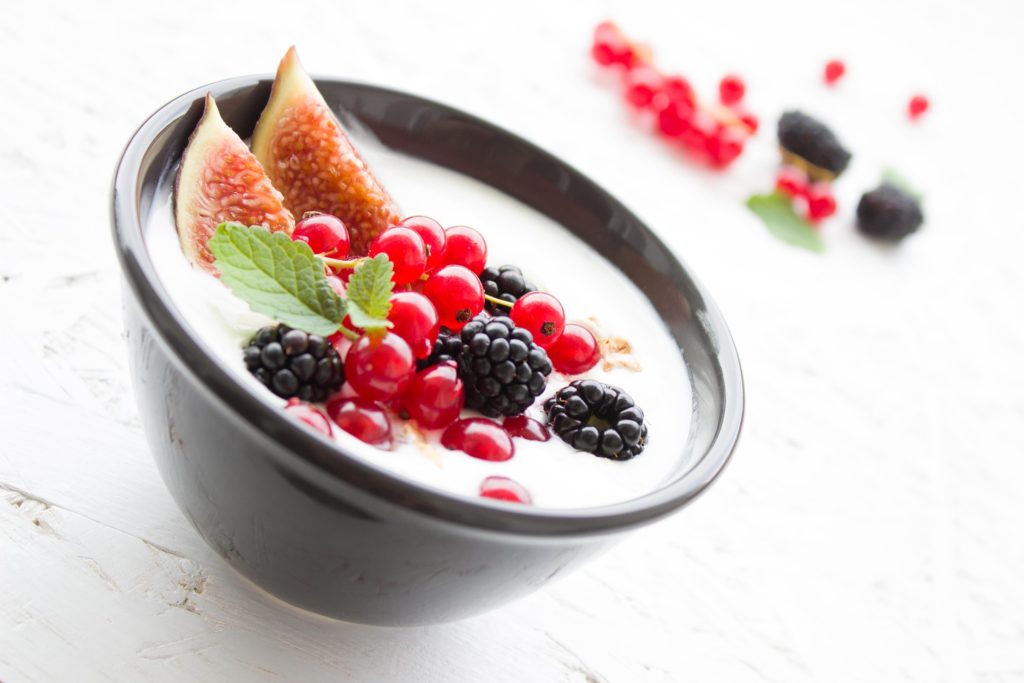
Deter Over-Growth of Bacteria
Bacillus laterosporus probiotics, another beneficial probiotic strain for immunity, is one of the best probiotics to deter overgrowth of pathogenic [disease-causing] bacteria such as Clostridium Difficile and Candida albicans.
Research shows that it may also help prevent autoimmune disorders such as rheumatoid arthritis, lupus, multiple sclerosis (MS), type 1 diabetes mellitus, etc. by stopping certain cells in the immune system from attacking the body’s own cells which cause autoimmune diseases. 4) Bacillus coagulans probiotics side effects
Bacillus coagulans probiotics side effects include gas production but these can be reduced or eliminated by taking probiotics supplements during or after meals.
If probiotics are taken by themselves they may cause stomach discomfort due to the release of toxins into the digestive tract which may also lead to probiotics benefits diarrhea.
Despite probiotic benefits, taking probiotic supplements regularly should be beneficial for most healthy individuals as long as the probiotic supplements contain live probiotic cultures.
The above information by the Health Wealth Lifestyle regarding the best probiotic for men is intended for informational purposes only. Please consult a healthcare professional as you see fit.
Explore Further
Best probiotic for vaginal health
Conclusion
It’s not easy to select the best probiotic for men over 50. There are so many products out there, and each of them contains unique strains of bacteria.
We’ve studied the market and compiled a list of the ten best probiotic supplements for men. Each of them offers a wide range of bacterial strains that can help you fight many health problems.
As we’ve already mentioned, it’s vital to choose one that contains lactobacillus and bifidobacterium species. These bacteria can help you get rid of bloating, bad breath, yeast infections, constipation, and diarrhea. They also improve your gut flora, thus boosting your immunity and improving your overall health.
If you want to maintain healthy cholesterol levels, a probiotic supplement with lactobacillus reuteri is a good choice. This strain can reduce cholesterol within a few weeks after you start taking it.
Finally, always look for a product with at least 50 billion CFUs per serving. As we’ve already mentioned, this is enough to do the trick. Also, keep in mind that some products require refrigeration while others don’t.
The best probiotics for men are designed to support overall digestive and immune health.
There are many different probiotic strains that have been shown to be beneficial in research studies.
Many of these strains can also be found in supplements marketed toward women, but there are several products that specifically target men’s health concerns like urinary tract health and prostate cancer prevention.
Supplements made with multiple strains may help improve symptoms of diseases like IBS and ulcerative colitis.
